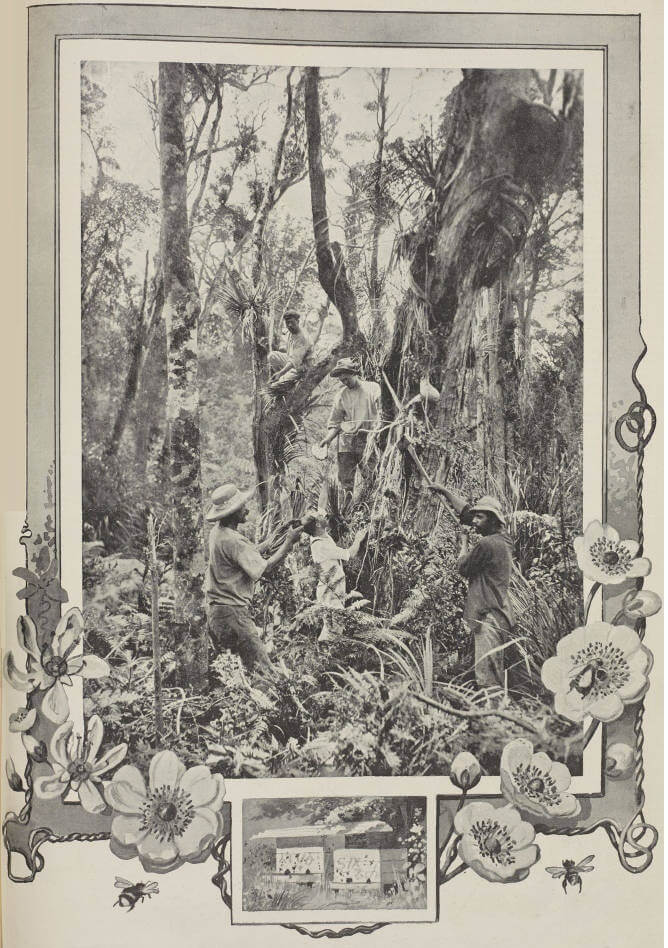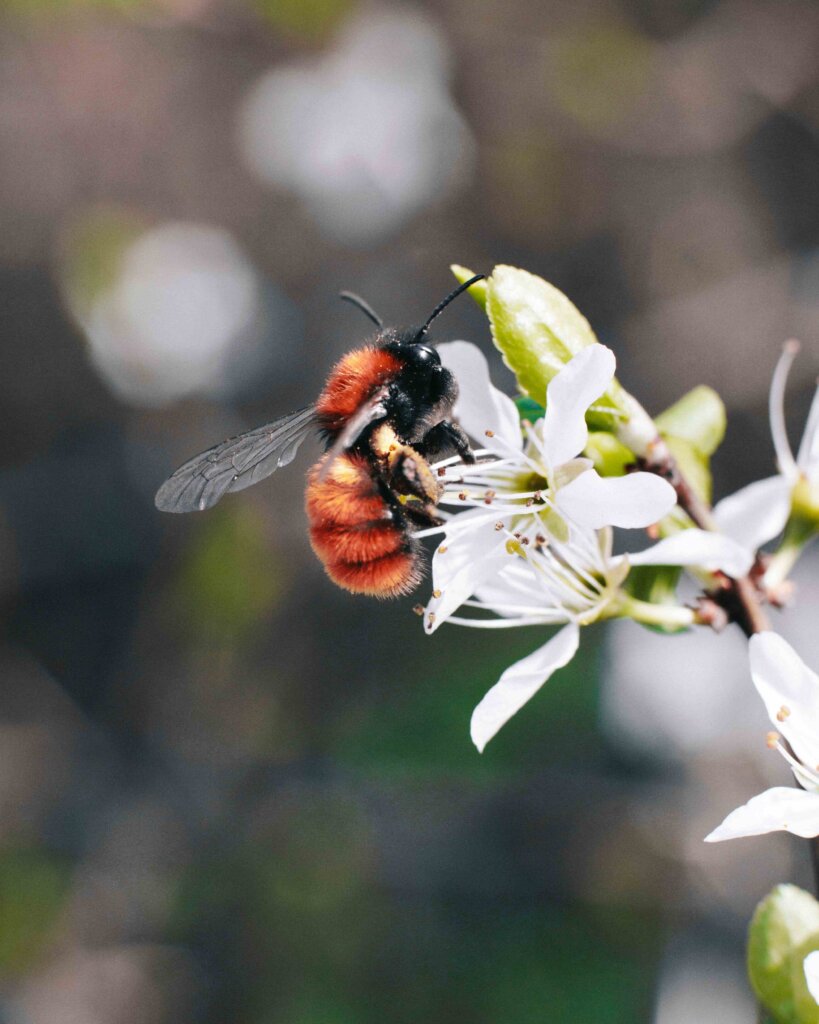The sound of someone falling woke one of the grandchildren of Harry Turner, 71, around 3am on a Sunday in April 1911.
On entering his room he found Harry on the ground in an agitated but speechless condition. With Harry’s wife Sophia he tried to get Harry back into bed, but he was struggling too much. Sophia then suddenly collapsed and went down on the floor alongside her husband.
The young man, unable to help them, went for assistance, and with two other grandchildren left Pirongia for Te Awamutu to find a doctor. Then another call came for another doctor regarding another strange collapse, this time at the home of the Joneses where two young boys were mysteriously seized. By the time Dr Reekie arrived they were recovering. In the meantime the three youths who had gone in search of medical assistance also collapsed, so that Dr Henderson had five patients on his hands at the one time.

Gathering bush honey.
By Tuesday morning Harry was conscious and he and Sophia were both considered out of danger, while the boys were improving fast. The doctors found the group had been acutely poisoned by honey which they had had with supper on the Sunday evening, after which the two Jones boys, also Harry and Sophia’s grandchildren, went home. The honey was from a hive on Harry’s property from which considerable amounts had been taken previously with no ill-effects.
Despite his progress, Harry suddenly died. Henry ‘Harry’ Pata Turner was Ngāti Maniapoto and lived at the foot of Pirongia Mountain. He was one of those who welcomed the first European settlers. He had had an adventurous life in the Māori wars, and dodged a tomahawk more than once. He was widely respected by European and Māori, and the deepest sympathy was felt for his relatives.
Newspaper reports stated that the honey had been obtained from whaurangi (or pukapuka) blossoms, which contained the deadliest of poison. This was rebutted by Mr Hopkins, Supervisor of Government Apiaries, who said honey used by the Turner family was from the whauriki or native buttercup. Whaurangi was a spring flowering plant. Whauriki grew in swampy ground, flowered in the autumn, and from his experience extending over 35 years he was confident that the honey must have come from this plant.
The tangi of Harry was held over three days. A large assembly of friends and relatives gathered from all parts of the province. Reverend Taimona Hapimana read a portion of the funeral service in front of the Turner’s house delivering a most eloquent address of hope and consolation. Harry was buried at the Kaipiha family cemetery. On Saturday morning the Rev Hapimana held a service at Mrs Turner’s residence, a large number of relatives still remaining there. He also baptised three infant great grandchildren of the late Harry and Sophia (Te Paea) Turner to commemorate the death of their beloved tupuna.

Photo: Thijs van der Weide, Pexels.com









